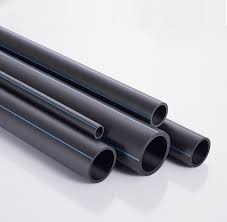Dec . 02, 2024 07:24 Back to list
PPR ဓါတ်တိုးပုံစံများနှင့် ထုတ်ကုန်ခွဲခြားမှု
PPR Pipe Product Types
PPR (Polypropylene Random Copolymer) pipes have gained significant popularity in modern plumbing and construction due to their outstanding properties. These pipes are primarily used for hot and cold water supply systems, making them an essential component in both residential and commercial applications. In this article, we will explore the various types of PPR pipe products available in the market and their specific applications.
1. Standard PPR Pipes
Standard PPR pipes are the most commonly used type. They are available in various diameters and lengths, making them suitable for a wide range of plumbing applications. These pipes are known for their excellent resistance to chemicals, high temperature, and pressure, which makes them ideal for transporting both hot and cold water. Standard PPR pipes are often used in residential water supply systems, irrigation, and industrial applications.
2. PPR Pipe Fittings
Alongside PPR pipes, fittings are crucial for a complete plumbing system. PPR pipe fittings include elbows, tees, reducers, and end caps, which help connect different sections of pipes or change the direction of flow. These fittings are made from the same high-quality PPR material, ensuring that the overall system maintains its durability and resistance to corrosion and scale buildup.
PPR composite pipes combine the advantages of PPR with the strength of other materials, such as aluminum. These pipes are often used in high-pressure applications and environments where additional strength is required. The outer layer typically consists of PPR, while the inner layer may have an aluminum or other strong material. This combination provides enhanced durability and resistance to temperature fluctuations.
type of ppr pipe product

4. PPR Thermal Insulation Pipes
PPR thermal insulation pipes are designed specifically for hot water supply systems. These pipes come with an additional layer of insulation to prevent heat loss during transportation. They are particularly beneficial in areas with colder climates, as they help maintain the temperature of the water, reducing energy costs for heating systems.
5. PPR Pipes for Industrial Applications
Specialized PPR pipes are also available for industrial applications, where chemical resistance and high pressure are critical. These pipes are designed to withstand harsh environments and are often used in factories, chemical plants, and laboratories. They are available in various grades and specifications based on the requirements of the specific industry.
6. PPR Pipe Systems for Underfloor Heating
PPR pipes have also found their application in underfloor heating systems. These systems require a network of pipes laid beneath the floor, carrying heated water to warm up the space above. PPR pipes are ideal for this application due to their ability to withstand high temperatures and their excellent thermal conductivity.
Conclusion
In conclusion, PPR pipes offer a diverse range of products suitable for various applications, from residential plumbing to industrial chemical transport. The versatility, durability, and resistance to corrosion of PPR materials make them an excellent choice for many plumbing needs. Selecting the right type of PPR pipe product depends on the specific requirements of the project, including temperature, pressure, and the nature of the liquids being transported. As technology advances, we can expect to see further innovations in PPR pipe products that enhance their performance and application possibilities.
-
High-Quality PVC Borehole Pipes Durable & Versatile Pipe Solutions
NewsJul.08,2025
-
High-Quality PVC Perforated Pipes for Efficient Drainage Leading Manufacturers & Factories
NewsJul.08,2025
-
High-Quality PVC Borehole Pipes Durable Pipe Solutions by Leading Manufacturer
NewsJul.08,2025
-
High-Quality PVC Borehole Pipes Reliable PVC Pipe Manufacturer Solutions
NewsJul.07,2025
-
High-Quality UPVC Drain Pipes Durable HDPE & Drain Pipe Solutions
NewsJul.07,2025
-
High-Quality Conduit Pipes & HDPE Conduit Fittings Manufacturer Reliable Factory Supply
NewsJul.06,2025

